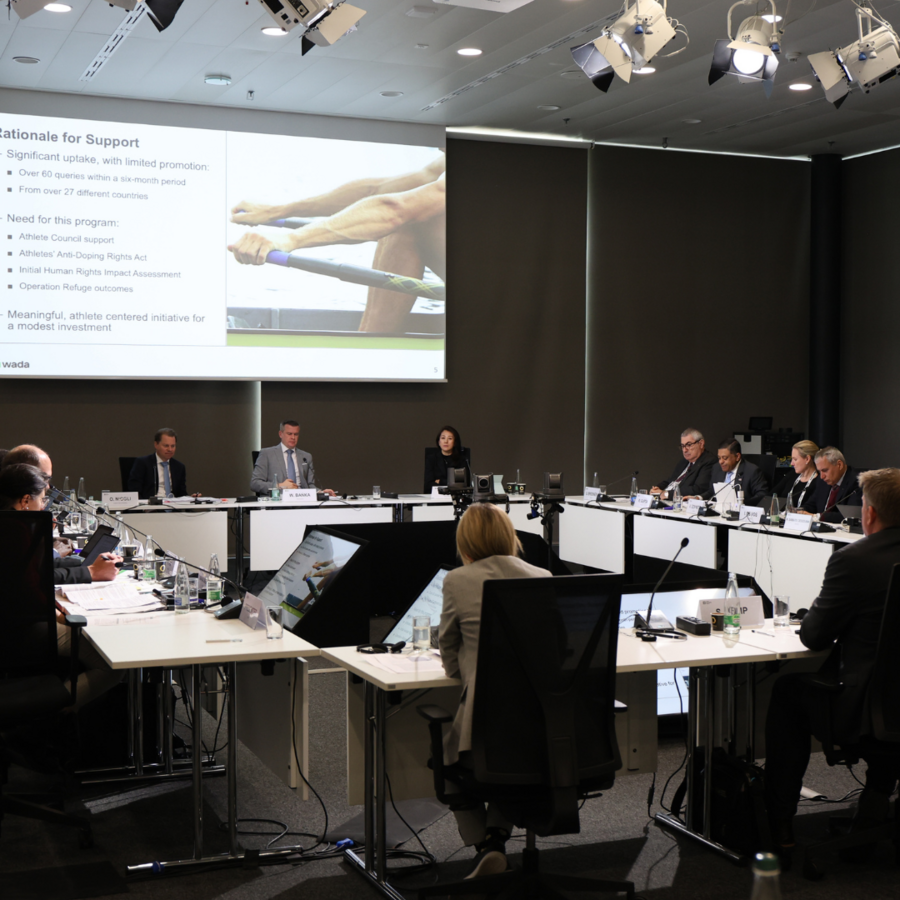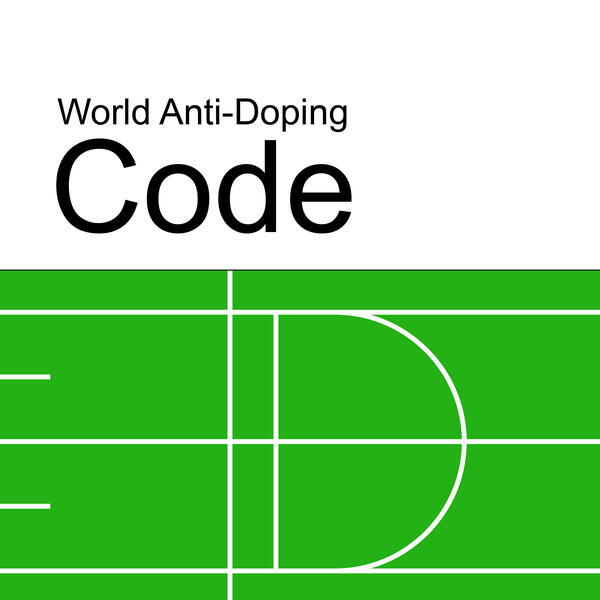Releases
WADA Executive Committee raises concerns about unsanctioned multi-sports events at its meeting in Lausanne

Today, the World Anti-Doping Agency’s (WADA’s) Executive Committee (ExCo) held its first meeting of the year in Lausanne, Switzerland. ExCo members were updated on WADA’s progress on key priorities, took a number of decisions – the main ones being summarized below – and made certain recommendations to the Agency’s Foundation Board (Board) that will be carried out shortly by circulatory vote. The meeting took place on the eve of the 18th WADA Annual Symposium which will be held from 12-13 March.
After today’s meeting, WADA President Witold Bańka said: “It was a pleasure to bring WADA’s Executive Committee members together in person today for a very productive meeting. With 2024 being an Olympic and Paralympic year, WADA and the entire anti-doping community are in the midst of an exceptionally busy time as we do everything possible to ensure all athletes are appropriately educated and tested ahead of the Games in Paris. With less than five months to go, this ExCo meeting and the Annual Symposium are great opportunities for stakeholders to refine their plans and catch up on what WADA is doing during this crucial pre-Games period.”
Unsanctioned Multi-Sport Events
As it relates to other multi-sport events, the ExCo members, including those representing athletes, the Sport Movement, and the Governments of the world, expressed their ongoing concerns about Russia’s plans to stage the Friendship Games, an unsanctioned event, in September 2024. In particular, it is of concern that as the event will not take place under the protection of the World Anti-Doping Code (Code), the health of and fairness for athletes may be compromised. WADA urges all Code Signatories to exercise caution and not legitimize this event as the Agency cannot vouch for the anti-doping program that may or may not be in place. This position is reinforced by the fact that Russia’s National Anti-Doping Agency (RUSADA) is currently non-compliant with the Code, there is currently no WADA-accredited laboratory in Russia and overall trust in the anti-doping system in Russia remains low.
The ExCo members also affirmed their opposition to the so-called ‘Enhanced Games’, an event that would encourage the use of performance-enhancing drugs by athletes. The ExCo was united in condemning the ‘Enhanced Games’ as a dangerous and irresponsible concept. The health and well-being of athletes is WADA’s number-one priority. Clearly this event would jeopardize both by promoting the use of potentially harmful substances and methods. As we have seen through history, performance-enhancing drugs have taken a terrible physical and mental toll on many athletes. Some have died. The ExCo stressed WADA’s position on this subject, warning athletes and support personnel, who wish to participate in clean sport, that if they were to take part, they would risk committing Anti-Doping Rule Violations under the Code. To be clear, WADA will encourage Anti-Doping Organizations worldwide to test involved athletes before, during and after this event, in order to protect the integrity of legitimate sport.
Athletes’ Anti-Doping Ombuds Project Assessment
The ExCo decided to extend the current Athletes’ Anti-Doping Ombuds contract until 31 December 2024 and expressed its appreciation for the work of the Ombuds, Anna Thorstenson, during her first year in the position. In the coming months, the promotion and awareness-raising of the program will increase and will be extended outside of Europe, while a plan outlining the long-term strategy for the Ombuds Project will be developed and presented to the ExCo during its scheduled meeting in September 2024. At that meeting, the ExCo will be asked to consider the longer-term status of the Ombuds program.
Compliance
The ExCo approved the recommendation from the Agency’s independent Compliance Review Committee (CRC) to add the following six Anti-Doping Organizations (ADOs) to the compliance ‘watchlist’:
-
Vietnam National Anti-Doping Organization (NADO)
-
Bahamas NADO
-
Cameroon NADO
-
Peru NADO
-
Sri Lanka NADO
-
World Wheelchair Rugby
In the case of the Vietnam NADO, the non-conformity is related to its failure to implement the 2021 version of the Code fully within its legal system. The other ADOs have been added to the ‘watchlist’ because of their failure to address non-conformities within their anti-doping programs as monitored through the Code Compliance Questionnaire.
As per the International Standard for Code Compliance by Signatories (ISCCS), by adding the ADOs to the ‘watchlist’, the ExCo has given them four months to execute their corrective action plans. If by 11 July 2024 the non-conformities have not been corrected to the satisfaction of the CRC, the ADOs will be declared non-compliant without the need for a further decision by the ExCo. Currently, there are three Signatories that remain non-compliant while eight are on the ‘watchlist’ (the NADOs of Cambodia and Tunisia plus the six ADOs added today).
The ExCo received an update on the current status of the Russian Anti-Doping Agency (RUSADA), which remains non-compliant with the World Anti-Doping Code. This is related to the 2020 decision by the Court of Arbitration for Sport to declare RUSADA non-compliant and implement a number of consequences on Russian sport for a period of two years. RUSADA will remain non-compliant until WADA has been able to verify that it fulfills each of the reinstatement conditions laid out by the CAS.
Meanwhile, WADA’s Operation LIMS investigation into the data and samples retrieved by WADA Intelligence and Investigations from the Moscow Anti-Doping Laboratory in 2019 continues to be successful. As a sign of that success, the number of athletes who have now been sanctioned as part of this project has reached the 250 milestone, with an additional 32 charged and 106 cases that remain under investigation.
Social Science Research Funding
The ExCo approved the recommendations of WADA’s Education Committee for social science research grants totaling USD 334,743 of funding under the 2024 Social Science Research (SSR) Grant Program. The grants will cover 11 proposals. SSR grants totaling USD 184,743 were approved to fund six stand-alone projects, covering 60 countries directly. Two of these projects are based in Europe, one in Africa, two in Asia and one in Oceania. One of the European projects will focus its research in Central America, with the involvement of local Anti-Doping Organizations and researchers. This is in line with the stated strategy of ensuring that at least 35% of funded projects are based outside Europe, due to the traditional dominance of European applicants receiving funding. The remainder of the approved grants (USD 150,000) will be allocated to five research proposals which will be combined into a multinational project focused on surveying athletes. The details of all the newly approved projects will be made available under the Social Science Research section of WADA’s website in due course.
Nominations Committee and NADO Expert Advisory Group
The ExCo approved the reappointment of Mr. Stewart Beck from Canada as an independent member of WADA’s Nominations Committee for a further three-year term until May 2027.
The ExCo was advised that Ms. Sarah Idieva Shibutse, CEO of the Anti-Doping Agency of Kenya, was elected as Africa region representative on WADA’s NADO Expert Advisory Group (EAG), further to a regional election that was held to fill one vacant seat. This vacancy followed the sad passing in October 2023 of Dr. Hanem Amir, CEO of the Egyptian NADO, who had been a valued member of the NADO EAG. Ms. Shibutse will join the EAG with immediate effect and her term will run until December 2025, concurrent with the other nine members of the NADO EAG.
Approval of updates to the ISCCS, Technical Documents and Technical Letters
The ExCo approved an update to Annex B4 of the International Standard for Code Compliance by Signatories that deals with Signatory consequences as they apply to government representatives, to come into effect on 1 April 2024 at the same time as the revisions to the Standard already approved in November 2023.
The ExCo also approved an update to the latest version of the Technical Document for Erythropoietin (EPO) (TD2024EPO), which will come into effect on 15 June 2024. This is an update to the 2022 TD related to the analysis of EPO by WADA-accredited laboratories and reflects efforts towards further improvement and harmonization of laboratory-related anti-doping rules and activities.
In addition, the ExCo approved modifications to two Technical Letters (‘TL23 - Minimum Reporting Level for Certain Substances Known to be Potential Meat Contaminants’, and ‘TL24 - Minimum Reporting Level for Certain Diuretics Known to be Contaminants of Pharmaceutical Products’), which will come into effect on 1 April 2024.
Following today’s approvals, the latest versions of the ISCCS, TD2024EPO and TLs will be published shortly.
More about the WADA ExCo
WADA is composed of a 42-member Foundation Board, which is the Agency’s highest policy-making body, and the 16-person ExCo, which is delegated by the Board to manage the running of the Agency, including the performance of activities and the administration of assets.
The ExCo is composed of five representatives from the Sport Movement, five representatives from Governments of the world, the independent Chair of WADA’s Athlete Council and five other independent members, including WADA’s President and Vice-President. Currently, approximately one third of the Board and ExCo members are former international-level athletes.

